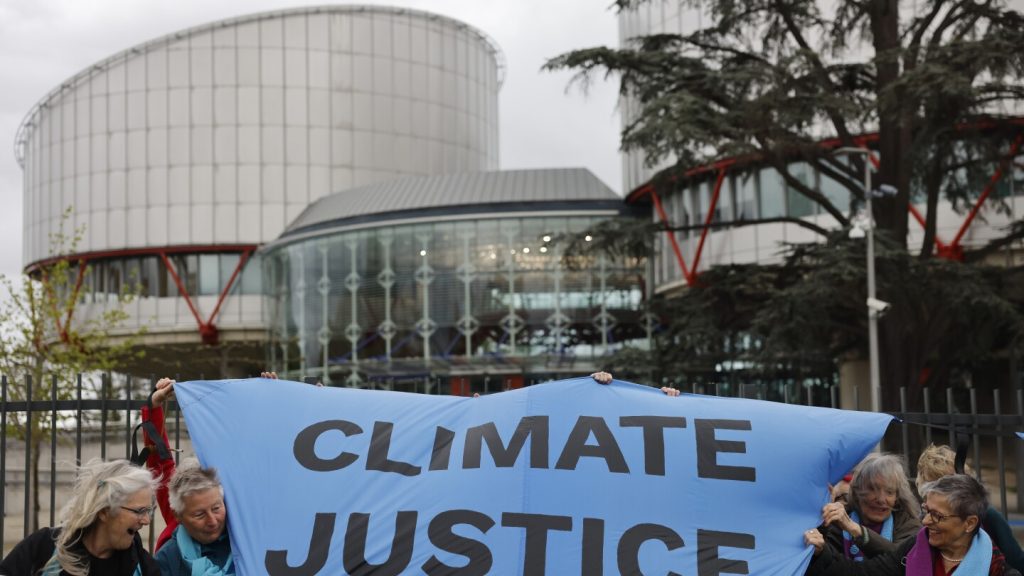Europe’s highest human rights court ruled that its member nations have a duty to protect citizens from the effects of climate change. However, a high-profile case brought by six Portuguese youngsters seeking to reduce greenhouse gas emissions was dismissed. The court also handed a victory to more than 2,000 Swiss members of Senior Women for Climate Protection, who sought measures to combat climate change. A French mayor also seeking stronger government efforts was defeated. The plaintiffs had hoped the court would find that national governments have a legal duty to ensure that global warming is limited to 1.5 degrees Celsius above pre-industrial levels.
The European Court of Human Rights stated that individuals have a right to effective protection from the adverse effects of climate change under the Human Rights Convention. This decision sets a legal precedent for future climate change-related lawsuits in the 46 member states of the Council of Europe. While domestic lawsuits have seen success, this ruling marks the first time an international court has addressed climate change. Experts view this decision as a significant turning point, confirming the obligation of countries to protect people from climate change and opening the door to more legal challenges.
Prior to the ruling, a crowd gathered outside the European Court of Human Rights to show support, including climate activist Greta Thunberg. The decisions have been described as potentially pivotal in the global fight for a sustainable future, with implications on climate change efforts since the Paris Agreement. The European Union aims to be climate-neutral by 2050, but some governments argue that meeting a 2030 target could be economically unattainable. The mixed ruling could affect a previous decision in the Netherlands, where the government was ordered to reduce emissions. The outcome of the recent ruling may impact whether countries are legally obligated to combat climate change.
Despite hopes for a favorable ruling, a case brought by six Portuguese youths and 16-year-old André dos Santos Oliveira was dismissed, citing the lack of legal obligation for countries to curb emissions. However, a group of Swiss retirees, Senior Women for Climate Protection, were successful in their demand for government action against climate change. The group argues that older women are particularly impacted by extreme heat due to global warming. All three cases emphasized that civil protections are meaningless if the planet becomes uninhabitable, drawing attention to the urgency of the climate crisis.
Representatives of Switzerland, acknowledging the global nature of the climate crisis, stressed that the issue cannot be resolved by one country alone. The court fast-tracked all three cases due to the pressing nature of the climate crisis, with the Portuguese case uniquely bypassing domestic legal proceedings. The rulings reflect a shift toward recognizing the legal obligations of nations to protect citizens from the effects of climate change, setting a precedent for future legal challenges in Europe and beyond. The decisions have been hailed as a landmark in the fight for environmental protection and global sustainability, with potential implications for international climate policy.
You Might Like
© 2024 West Observer. All Rights Reserved.


